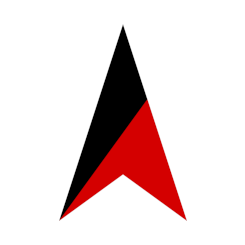A new economic protocol for scalable, ecological production
The Basis project is an answer to the question: "What comes after Capitalism?" The project enables a productive system that matches supply with demand without using profit, tracks production costs in a detailed way that allows adaptively pricing externalities based on collective knowledge, meets basic needs of participants, and preserves personal agency and autonomy. It does this without economic planning or authoritarian structures, built from the ground up to be self-organizing.
-
Producer network
Basis is a peer-to-peer protocol that facilitates transactions and exchanges within a network of builders and makers without the use of money, instead automatically tracking direct costs.
-
Ecological accounting
At its core, Basis is a cost-tracking system. However, Basis does not use money or prices as an exchange mechanism between producers.
-
₡ Currency
Credits (₡) in Basis are paid as wages to workers and can be used for consumer purchases.
-
Cybernetics
The profit mechanism is replaced with a more intentful approach that balances the well-being of workers, the health of the environment, and consumer relationships.
Producer network
Basis is a
peer-to-peer
The transactions that happen in this network are transparent to all participants (with the exception of consumer purchases which are entirely confidential), allowing any member to view how a product is made from raw material to finished good. This transparency also encourages cooperation and collaboration as a primary form of production while still supporting competition as a balancing force.
Ecological accounting
Basis replaces the concept of a price inside the productive system with separate collections of labor, resources, and processes. A chair no longer costs $35, but rather 4kg wood from a new growth forest in Oregon, 37 minutes of sawmill worker labor, 1.2 hours of trucker labor, 1.1L of diesel fuel, etc.
These costs are assigned to the products created by one company, and move with the product when it is ordered by another company. This matches inputs with outputs, completely eliminating the idea of profit.
Labor
2hr logger + 1hr trucker
Resources
200kg lumber + 6L diesel
Processes
refine(8L oil)
This cost tracking in disaggregate allows democratically assigning prices to certain resources and processes that are known to have harmful externalities, enabling prices for end products to be much more accurate.
This incorporation of externality cost directly into the things we make allows the productive system to attain elevated human awareness of its effects. Production becomes much more integrated and intentional.
Currency
The Basis protocol defines a currency, "credits" (₡), created both as wages when engaging in production but also as a basic income. Credits are destroyed when spent on consumer products and do not circulate the productive network. This defines a membrane around the productive network that allows pricing products separately from their cost without the producers realizing a direct gain or loss, allowing elevated systems of value. The process of pricing is guided and incentivized by the cybernetics system.
Cybernetics
The profit mechanism is replaced with a more intentful approach that balances the well-being of workers, the health of the environment, and consumer relationships. This is done using cybernetics, which determines producer performance in the absence of profit using the other available information in the protocol as a guideline. This allows automatic adjustment of the ongoing societal investment in a producer based on the demand for their products, the delta between their costs and their prices, etc. The cybernetics system can be thought of as a slow-moving gravitational pull toward benefiting society as a whole.
Read the paper and find out how the protocol works in detail!
Project news All news »
-
New protocol and paper: v3.0 Andrew Lyon - May 6, 2022
-
Protocol updates: a new look at what Basis is Andrew Lyon - Oct 8, 2021
-
On resources and raw materials Andrew Lyon - Jul 31, 2020
-
July 2020 Basis project status update Andrew Lyon - Jul 15, 2020
-
Rethinking regions and companies: an exploration in self-organization Andrew Lyon - Jul 10, 2020
-
Cost derivation: In-kind cost tracking in moneyless production Andrew Lyon - May 23, 2020
-
May 2020 Basis project status update Andrew Lyon - May 18, 2020
-
ValueFlows, Holochain, and blockchain Andrew Lyon - Apr 5, 2020
-
Inner workings of banking (a rough draft) Andrew Lyon - Feb 15, 2020
-
Duality, housing, and markets: strategies for socialist growth Andrew Lyon - Feb 14, 2020
-
First Basis project update Andrew Lyon - Feb 2, 2020
Come join us at the Basis community or join in on ongoing discussions!
